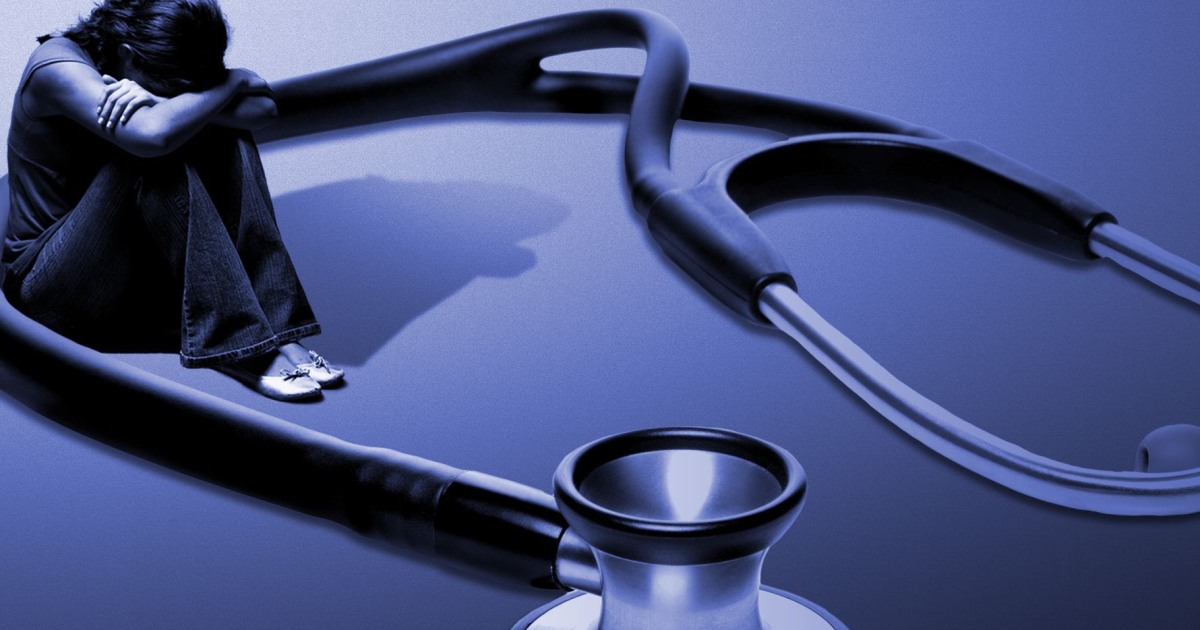Manuela couldn't even walk to the hospital.
Her relatives had to wrap her in a hammock and transport her as best they could to the health center located two hours from her home in a rural area on the outskirts of San Salvador.
She was passed out, the bleeding prevented her from moving on February 27, 2008. Moments before, she had felt severe pain in her pelvis that made her run to the latrine of her home, where she suffered an obstetric emergency and expelled the fetus she carried in her womb. .
A day later, she was arrested, while she was hospitalized.
The Salvadoran State was sued before the Inter-American Court of Human Rights (I / A Court HR) for violating the rights of Manuela, a very poor woman who could not read or write.
This week, the Inter-American Court held a hearing to discuss his case and the circumstances of his arrest, which
took place "breaking with the spirit of the exceptional nature of the detention in flagrante delicto."
Manuela is a Salvadoran who was sentenced to 30 years in prison after presenting an obstetric emergency and losing her baby.
She was reported to have an abortion and was handcuffed while she was still in the hospital.
They charged her with aggravated murder.
This week in San Salvador, rallies were held in favor of justice in his case.Marvin Recinos / AFP via Getty Images
Sara's story is similar.
She was also handcuffed to a hospital bed, after she suffered an obstetric emergency when she slipped and hit herself while washing clothes.
She was home alone and lost a lot of blood before getting help.
[Argentina passes a historic law that legalizes abortion until week 14]
After being accused of having performed an abortion, the prosecution came forward, changed the charges to point her out of aggravated homicide and sentence her to 30 years in prison.
This Monday, March 15, a hearing will be held in which
the judge can determine if the new evidence presented is sufficient to declare her innocent and release her.
This Monday a hearing will be held to analyze Sara's case, feminist organizations see it as an opportunity to condemn the criminalization of abortion and obstetric emergencies.Women's Equality Center
"Manuela's story can be Sara's if we don't do something to try to get her out of jail.
It is a very sad and moving case but it is the same story of the rest of the women who are still detained in jail. She has been imprisoned for nine years. and the last time we saw her,
she was not in the best physical, emotional or health condition, "
says human rights lawyer Paula Avila-Guillen, executive director of the Women's Equality Center (WEC) in an interview with Noticias Telemundo.
"Her sad case shows us why we have to continue fighting for the women who are in jail and it can serve as a call to El Salvador to do the right thing."
["They raped me, they beat me and I felt like I was disappearing": in Mexico women suffer human rights abuses when they go out to protest]
The details of Manuela's case and how her rights were violated
Upon arriving at the medical center, the doctor who treated Manuela in 2008 interrogated her in an unforgiving manner.
While Manuela was literally bleeding to death, the doctor asked her about her sex life and insisted on knowing what had been done.
"This type of interrogation tries to look for something as a criminal, right? Because his medical history is marked by questions of judgment (...) as they do not believe what he is saying,"
said Dr. Guillermo Ortiz, an obstetrician-gynecologist who worked in the expert opinion of this case, during the hearing held on March 10 before the IACHR.
The heartbreaking testimony of a victim who protested for the rights of women in Mexico
March 8, 202102: 52
It took three hours before treating her and immediately, the medical staff reported that she had miscarried.
In the midst of the delirium of its severity, Manuela was handcuffed to a stretcher for seven days, the police and medical personnel who were watching her insulted and denigrated her.
Doctors were so focused on her alleged miscarriage that they did not see a mass on her neck, which later, while in prison, resulted in a diagnosis of cancer, Hodgkin's lymphoma.
Manuela was sentenced to 30 years in prison for aggravated murder shortly after her arrest.
In El Salvador, which has some of the most restrictive abortion laws in the world, sentences can run up to 50 years in prison.
It is estimated that
between the years 2000 and 2019, 181 women suffered obstetric emergencies and were criminalized for alleged abortions or the charge of aggravated homicide.
["I'm dead while I'm still alive": relatives of victims of feminicide and activists demonstrate in Mexico City this March 8]
Manuela was never able to recover.
In prison, he lost 13 kilos and did not receive the chemotherapy he needed to treat his cancer in time.
On April 30, 2010 he passed away.
"It is not known if it is because of the lymphoma or not that she loses the pregnancy, but it could be related. Manuela is denied medical treatment and dies in prison, leaving two orphaned children. Her case reached the Inter-American Court because there was no justice. in El Salvador. It is not recognized that she died in a prison without receiving the medical attention she needed, "Avila-Guillen explained to Noticias Telemundo.
Manuela's case has become a symbol of the inequality and adversities that women must face in countries like El Salvador.
Dozens of activists attended the hearing of his case this week before the IACHR;
others connected by videoconference.AFP via Getty Images
The long search for justice
"I can't understand when it goes from being a medical emergency, as is the case with Manuela, to a crime. I can't connect it.
How can a criminal link be established in a woman who was very, very ill in the time of delivery and even faints? "
Ortiz said, dismayed, in one of the videoconferences this week in front of several IACHR judges.
[Why the negative impact of COVID-19 on women is disproportionate]
Relatives of Manuela, whose real name has not been released to respect her privacy, are still seeking justice thirteen years later.
"We see that Manuela only counts as a reproductive entity, everything else is not important.
Prison service agents saw that she was in pain and as she passed they said 'she is in pain for what she did.' It is a kind of moral punishment
(...) In addition, the The 30-year sentence is totally disproportionate, "said Laura Clérico, a doctor in Law, who was also in charge of the expert opinion on the case.
Women intervene a fence around the National Palace to protest against femicides in Mexico
March 8, 202101: 42
[AMLO's last three disagreements with the feminist movement in Mexico]
"His case reaches the degree of torture given that it is intentional, motivated by his gender,
seeks the purpose of perpetuating the stigma and reflects the maximum degree of severity," the plaintiff said during the hearing.
"She
was sentenced to 30 years and her version was never heard. They determined that she was homicidal because they considered that the fetus had been born alive based on a technique not suitable for that conclusion. The State did not guarantee that the diagnosis and treatment would be provided."
The Feminist Collective for Local Development and the Center for Reproductive Rights are the organizations that made the demand that tries to get the Salvadoran State to recognize the abuses and human rights violations perpetrated against Manuela and her family.
The two hearings last week were
the culmination of a long and tortuous process that began in 2012
when the Inter-American Court began an investigation of the case, after Manuela's relatives exhausted the national courts.
In 2019, the commission produced a report listing the multiple abuses that were committed in the case.
From illegal detention to violations of fundamental rights such as the presumption of innocence, judicial protection and health, among others.
Feminist organizations demonstrated in Sal Salvador during the hearing of Manuela's case at the Inter-American Court of Human Rights, on March 10, 2021. Getty Images / Getty Images
Manuela was a woman head of the family, living in poverty, suffering from cancer and later deprived of her freedom - she
was subjected to discrimination and lack of protection based on three gender stereotypes
, as explained by Carmen Martinez of the Center for Reproductive Rights during the hearing about the case.
1-
A stereotype according to which
a woman who has relationships outside of marriage is immoral
, so she does not deserve respect for her integrity.
2-
The false belief according to which the woman always has the maximum function of sacrificing herself in the name of reproduction, and that
even in the face of death a maternal instinct must prevail
.
In this case, despite losing a large amount of blood, suffering from cancer and pre-eclampsia, Manuela not only had to overcome herself but also had to understand perfectly what was happening to her: the supremacy of the mother's instinct.
3-
A poor woman has no agency over what she decides:
her word has no value.
Their opinion is presumed to be ignorant and their attitude is primitive towards reproductive health.
[Women suffer the economic impact of COVID-19 disproportionately: 275,000 are left out of the labor market in January]
Absolute criminalization: a form of discrimination and violence
"We hope that the court will highlight that the context of the absolute criminalization of abortion constitutes a form of discrimination, of gender violence, which has a disproportionate impact on women who are in a situation of vulnerability and which facilitates the criminalization or prosecution of the victims. reproductive processes, including obstetric emergencies, "Catalina Martínez Coral, regional director of the Center for Reproductive Rights, told Noticias Telemundo.
Although Manuela's defense has criticized the legal advice she received during her legal process, the representatives of the Salvadoran State insist that her rights were respected and assure that the simple fact of having received medical treatment in the health system is a sign that there was no negligence in his case.
The Salvadoran Institute for the Development of Women did not respond to requests for comment during this report.
During the hearings, a video was also released with statements from Manuela's eldest children, now orphans.
"I remember my mother, she advised us and never let us walk alone. It is painful to grow up without a mother because that love is unequaled. I ask the State not to do these things because they left us abandoned without a mother," said Santos de Jesús, Manuela's eldest son.
[Violence against women worsens due to COVID-19]
A historic opportunity to redress injustices
There is still time for the Inter-American Court to issue a ruling, which is expected in one or two months.
Martínez Coral is optimistic in this regard and believes that the court should take this opportunity to point out the international responsibility of El Salvador.
This would set a valuable precedent in the jurisprudence of the entire region, since the decisions of the court become part of the Inter-American System for the Protection of Human Rights, recognized by at least 25 countries.
"The States must prevent the criminal prosecution of women who suffer obstetric emergencies and work to repair the damage to those who have been detained, and arbitrarily sentenced for suffering such complications,"
asserts the expert.
"In the case of Manuela, the testimonies of the experts were heard and what the plaintiffs are asking the court is to condemn the State of El Salvador for human rights violations against Manuela, and to comply with individual measures to repair to the victims and also to non-repetition: what can the State do to prevent more situations like these from happening ".
[If you are in the United States, these with the resources in case of domestic violence]
More similar and iconic stories
Another such case is that of Teodora del Carmen Vásquez, a Salvadoran woman who suffered a stillbirth in the last month of her pregnancy and was also sentenced to 30 years in prison.
His story became emblematic.
Unlike Manuela, Vásquez managed to be released in 2018 after spending almost 11 years in prison and now dedicates her life to the fight for the vindication of women's rights and their social reintegration after going through prisons.
"They don't give us work because of the criminal record, it is very difficult.
In addition, there are health complications and psychological problems because many times the relatives think that when one gets out of jail all the problems are over, but really at that moment other things begin. important, "Vásquez explained in an interview with Noticias Telemundo.
At 37 years old, she assures that she feels "reborn".
She is now studying for a degree in Communication and Advertising and has become a successful activist for Mujeres Libres de El Salvador, an organization that advocates for the liberation of all Salvadorans convicted of the criminalization of abortion.
He proudly says that they have already achieved the freedom of 44 women;
there are still 20 left in the prison system.
["A rainbow of women shouting 'Justice'": this is how the March 8 march was lived in Mexico]
During his long stay in prison,
Vásquez met Manuela.
"Like every woman who comes to jail, she had the illusion of going free. She always showed love and affection for her children. Unfortunately, she died, but she has become a symbol for us," she said.
On March 7, more than 5,000 women came out to protest before International Women's Day in San Salvador.
According to statistics from non-governmental organizations and the news media
during 2020, at least 130 femicides were registered and 541 women are missing.
It is estimated that every 18 hours a woman disappears in the country.
"My dream is that through the struggle we are doing, we will achieve a change in legislation and that it is achieved that women are no longer penalized for abortions. We are sure that we have sown a seed and, although it is not seen now, future generations will reap it at another time. And for me, that's the most important thing, "said Vásquez.
[8M: millions of women march in the world despite sexist violence and fear of the coronavirus]
Sara's case: what is going to be discussed this Monday?
"If the Salvadoran State does nothing in Sara's case, we fear that the same thing will happen to her as Manuela. Her family was never the same. This is a law that destroys families, the only thing she wants is to be with her children again. parents, "adds Avila-Guillen, who met her in jail.
"She was very excited to be a mom. She is still grieving her loss."
This Monday the judge can recognize that there have been systematic rulings during the process against her and consequently, release her immediately.
Not in all cases has there been the option of a new hearing and that is what makes this case important:
the judge can still recognize Sara's innocence so that she is with her family and Manuela's story is not repeated.
Argentina approves bill that legalizes abortion
Dec. 30, 202000: 37
"I hope that the judge has the objectivity to see the evidence and understands that an accident cannot sentence a girl to 30 years in prison, it cannot destroy an entire family. I hope that he sees this case from the light of justice and not of their personal prejudices ".
"The only way to prevent Manuela's story from repeating itself is for all the women to be released. The United Nations committees have determined that
these are arbitrary detentions, we know that there is a systematic pattern, that they do not have to be die in prisons to achieve justice,
Manuela's precedent already exists and the only way to avoid it is by releasing them and stopping criminalizing women for obstetric emergencies ", Avila-Guillen asserts.
"Nayib Bukele has no excuses for El Salvador to move forward. On May 1 the president will have a qualified majority in Congress, so if the will of his party is to protect the lives and health of women, he has all the tools in his hands. hands to allow at least (abortion) to be allowed in some exceptions in El Salvador and to stop criminalizing women who suffer obstetric emergencies. Unlike other times and contexts, here it only depends on him. He has the coordination politics of his party ", concludes the activist.




/cloudfront-eu-central-1.images.arcpublishing.com/prisa/2XWZK2SNNVHNTOU6DYROGV3XVI.jpg)




